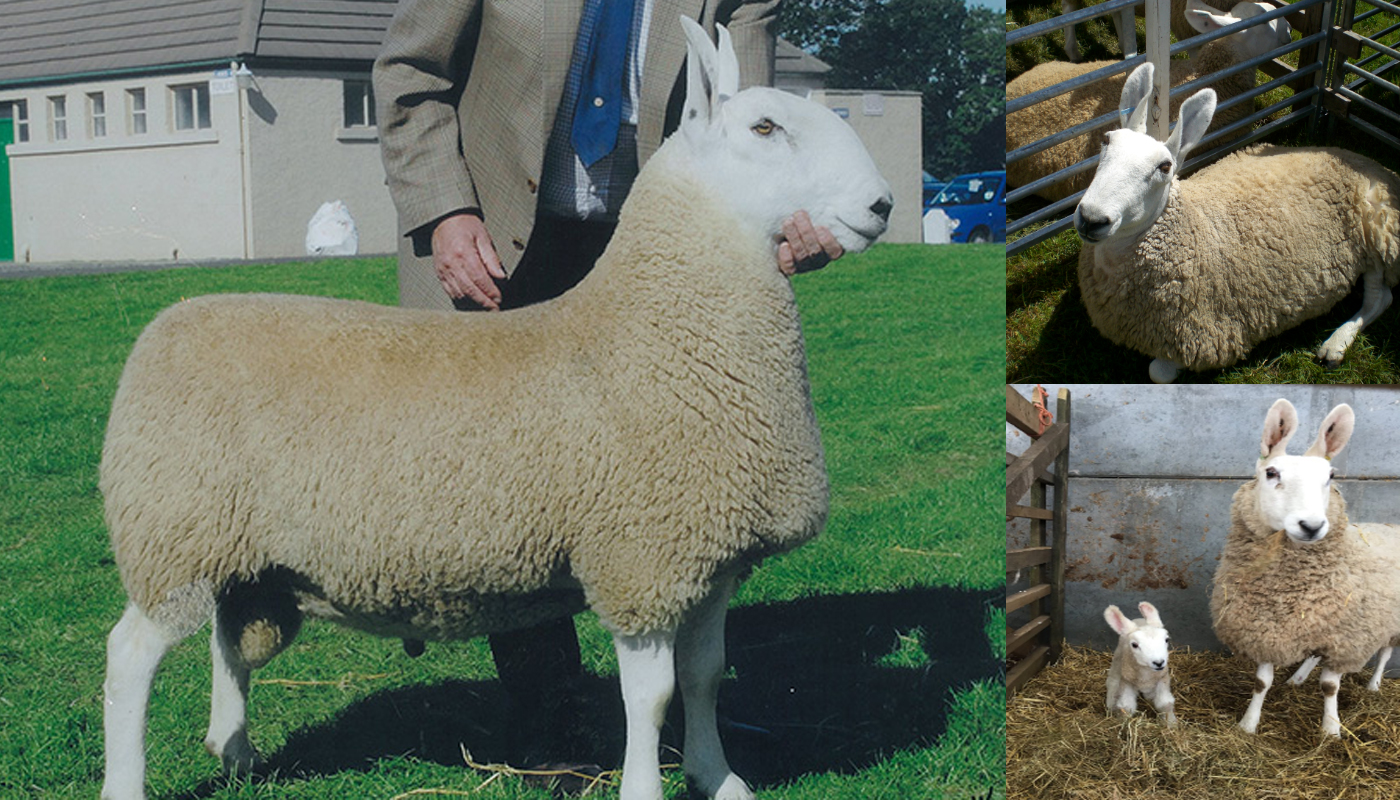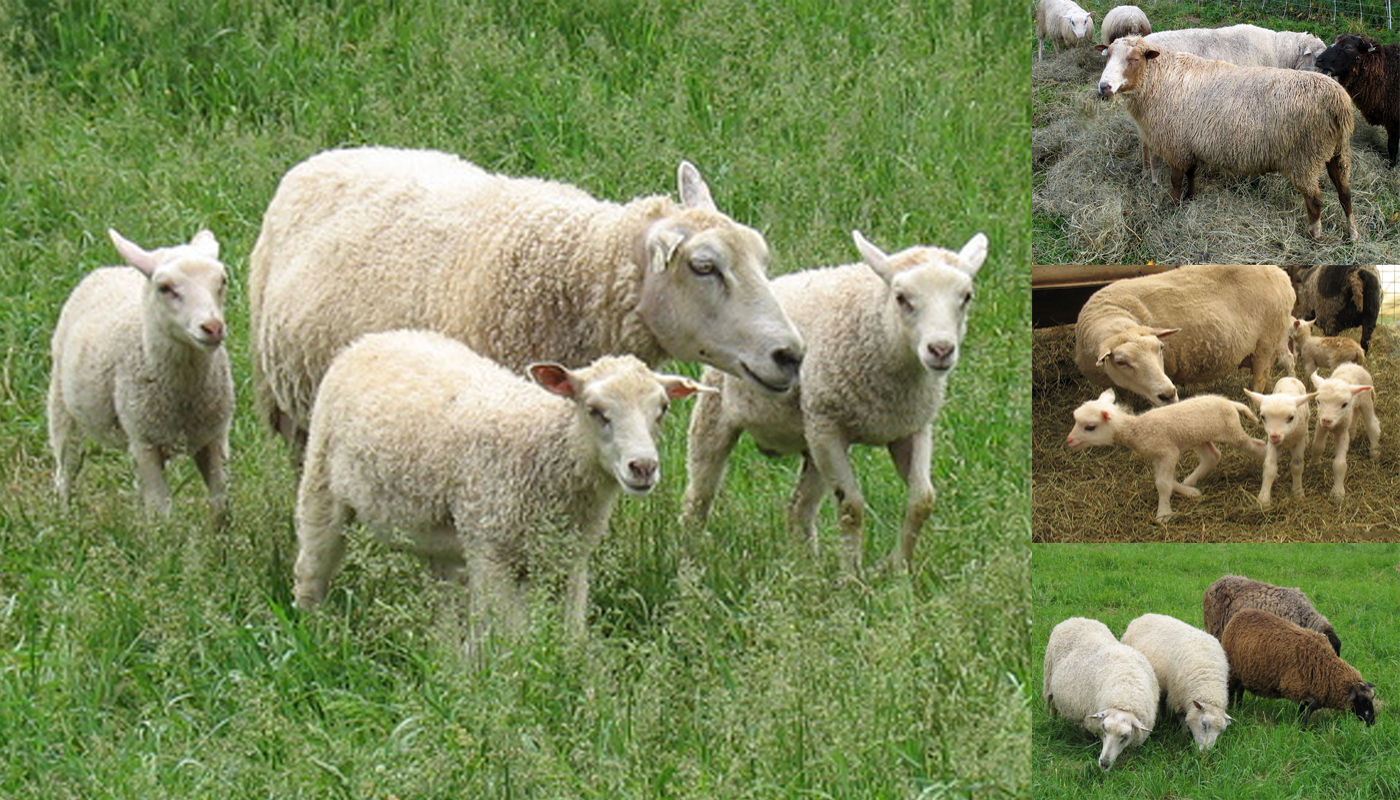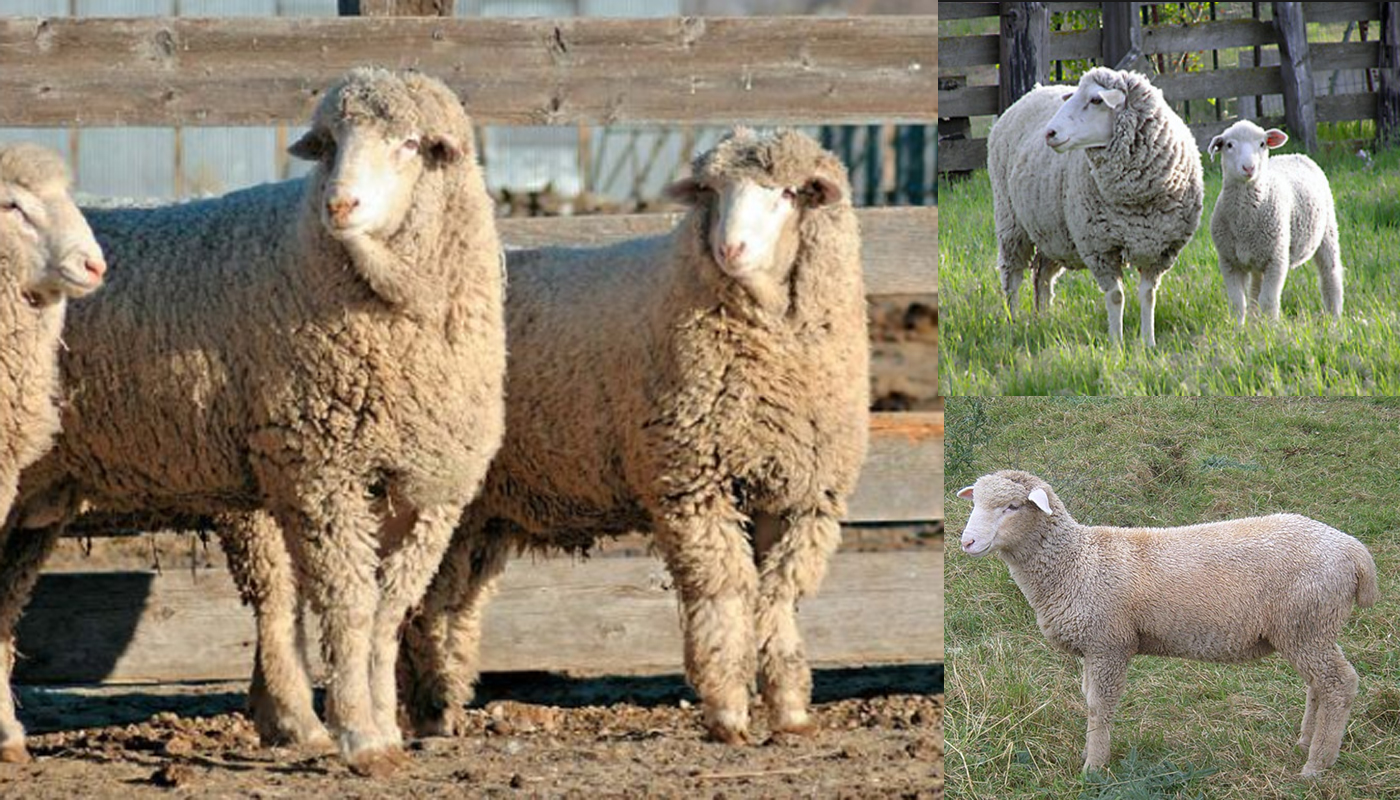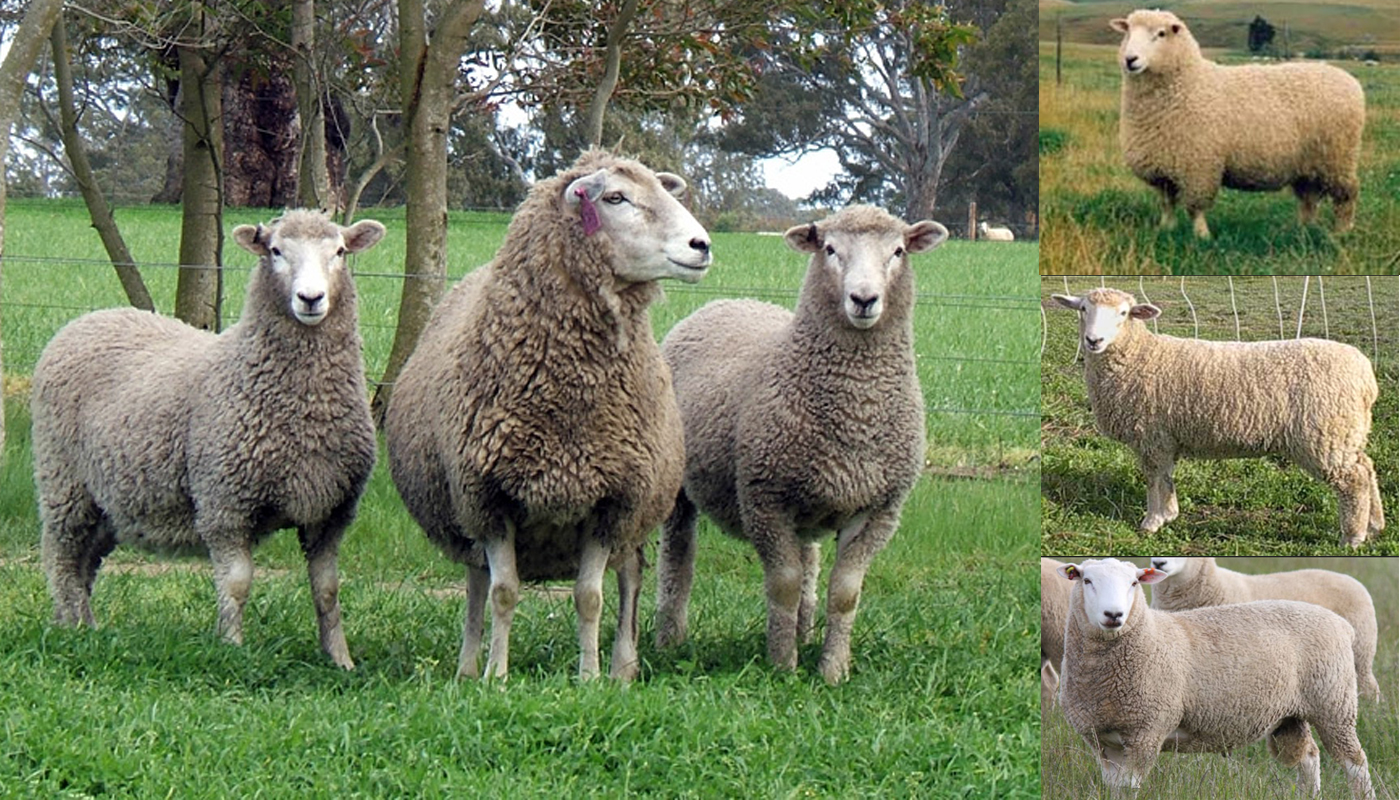
The Barbados Black Belly sheep breed is a gentle docile breed that is active and alert. They are one of the best foragers and love to do foliage management. They produce a high-quality mild-flavored meat that is said to be very tender.
They are also very beautiful sheep that do not really have a huge heavy fleece but rather a shorter smoother one. They are also very prolific breeders that can produce one to two lambs up to twice a year as they can breed out of season.
BARBADOS BLACK BELLY SHEEP QUICK PROFILE OVERVIEW |
|
|---|---|
| The Barbados Black Belly sheep is known for its mild flavored tender high-quality lamb | |
| Country of Origin: | Caribbean |
| Other Names: | Black Belly or Barbados Barriga Nigra |
| Breed Size: | Medium |
| Main Purpose: | Meat |
| You may Also Like: | 11 Best Sheep Breeds for Meat Production |
| Can be used for | Breed, Meat, **LSC (Landscape Management) |
| Temperament: | Docile and alert |
| Ideal Climate: | Most climates |
| Conservation Status: |
Yes Listed by the *ALC Recovering/Watch |
| Health Issues? | No known health issues |
| Good Starter Sheep? | They are a novice to intermediate sheep farmer friendly breed |
| Sheep Associations: | The International Registry for Barbados Blackbelly And American Blackbelly Sheep |
| Sheep Clubs: | Please check with The International Registry for Barbados Blackbelly And American Blackbelly sheep for up-to-date breeder listings |
| Note: *ALC stands for American Livestock Conservancy ** LSC stands for Landscape Management – the animal is used for controlling various vegetation growth |
|
PHYSICAL CHARACTERISTICS |
|||||||||||||||||||||||||||||||||||
|---|---|---|---|---|---|---|---|---|---|---|---|---|---|---|---|---|---|---|---|---|---|---|---|---|---|---|---|---|---|---|---|---|---|---|---|
| They are docile alert with a triangular shaped head and Roman nose. The Ram has a more masculine head that the female. They have slender forelegs and muscular hindquarters. Their bodies are deep, wide, with well sprung ribs and should be large in relation to the animal’s size. | |||||||||||||||||||||||||||||||||||
| Color(s): | Yellow, tan and different shades of brown | ||||||||||||||||||||||||||||||||||
|
|||||||||||||||||||||||||||||||||||
EWE BREEDING & MILKING INFORMATION
| They are not usually used for their milk. They can be bred twice a year in 8 to 9-month intervals. They can also carry their pregnancy through hot humid heat. | |
| Breeding Period/cycle: | Usually lasts 24 to 36 hours |
| Estrous cycle: | Ave. 17 days/15 to 20 days |
| Gestation Period: | Usually, around 149 to 155 days but most gestation is 152 days |
| No. Lambs/Litter: | 2 (twins) or 3 (triplets) |
| Lactation Period: | Usually, around 150 to 240 day but most are milked for 180 days |
| Milking From: | 4 to 6 weeks after lambing |
| Milk Quality: | Good |
| Milk Ideal for: | Feeding their lambs |
| You may Also Like: | 10 Best Sheep Breeds for Milk |
SHEEP MEAT PRODUCTION INFORMATION
| Good, known for mild flavored, tender meat | ||||||||||
| Meat Production: | Yes, Quality: Good | |||||||||
|
||||||||||
| You may Also Like: | 11 Best Sheep Breeds for Meat Production | |||||||||
GOOD TO KNOW ABOUT THE BARBADOS BLACK BELLY SHEEP
| Some interesting information to know about the Barbados Black Belly sheep breed | |
| Child-Friendly? | They are quite large and can be a bit skittish if not raised correctly. They are not suited around children |
| Landscape Management? | They do love to graze and are top notch foragers. |
| Where to buy them? | Please see the Barbados Blackbelly Sheep Association International breeders directory for an up to date list of breeders in or around your area. |
| General Information | The Barbados Black Belly Sheep has a 300-degree field of vision and as such does not have to turn its head to behind it. They, as all sheep do, have excellent hearing. They can be used to control unwanted, rough vegetation and noxious weeds. Barbados Blackbelly sheep can withstand very humid dry conditions and still thrive. |
HISTORY
The Barbados Blackbelly sheep breed was a breed that was developed on the Island of Barbados in the Caribbean.
They are a result of the cross breeding of various European wool sheep breeds and African hair sheep breeds that were brought to the Island around the mid-sixteen-hundreds.
The first Barbados Blackbelly sheep to be imported to America was in 1904 when the sheep caught a lot of interest from Texas. The Blackbelly were loosely managed in Texas and often crossed with Mouflon which is a feral horned sheep as well as Rombouillet sheep breed. They were crossed as such to create a game animal with large horns.
Through selective breeding programs, the sheep were carefully chosen to produce a breed with horn growth, shedding ability and various color characteristics. This breeding created a separate breed altogether called the American Blackbelly sheep breed.
Dr Lemmuel Goode a resident of North Carolina and a member of the North Carolina State University imported a small number of pure-bred Barbados Blackbelly sheep directly from Barbados in the 1970’s.
It is from this herd that all the pure-bred Barbados Blackbelly sheep in the USA originate.
They are listed as watch/recovering by the American Livestock Conservancy because as of 2010 there were less than 600 Barbados Blackbelly sheep listed throughout North America.
The original breed stock from the North Carolina State University was sold to a private breeder in 1996.
Realizing the dire state, the breeds numbers were in America a group of private breeders goat together to form a co-operative to help save the breed. The breeds numbers are currently on the rise with the Barbados Blackbelly registration having risen each year as reported by the Barbados Blackbelly Sheep Association International or the BBSAI.
Video
USEFUL LINKS
- United States Lamb Resource Center
- American Sheep Industry Association
- American Sheep Industry Association List of Breed Associations & Standards
- American Milk Sheep Association
- Dairy Sheep Association of North America
- American Wool Council
- Fur Commission USA
- North American Meat Institute
- American Lamb Board
- National Lamb Feeders Association
- American Livestock Conservancy
- Animal Shelter (ASPCA)
- American Veterinary Medical Association
- American Animal Welfare Society
- American Animal Control
- American Animal Husbandry Society
- United States Department of Agriculture
 Border Leicester Sheep Breed – Everything You Need to Know
Border Leicester Sheep Breed – Everything You Need to Know North Country Cheviot Sheep Breed – Everything You Need to Know
North Country Cheviot Sheep Breed – Everything You Need to Know Charollais Sheep Breed – Everything You Need to Know
Charollais Sheep Breed – Everything You Need to Know Awassi Sheep Breed – Everything You Need to Know
Awassi Sheep Breed – Everything You Need to Know 18 Best Wool Producing Sheep Breeds
18 Best Wool Producing Sheep Breeds Finnsheep Sheep Breed – Everything You Need to Know
Finnsheep Sheep Breed – Everything You Need to Know Suffolk Sheep Breed – Everything You Need to Know
Suffolk Sheep Breed – Everything You Need to Know 10 Hair Sheep Breeds
10 Hair Sheep Breeds Columbia Sheep Breed – Everything You Need to Know
Columbia Sheep Breed – Everything You Need to Know Teeswater Sheep Breed – Everything You Need to Know
Teeswater Sheep Breed – Everything You Need to Know Coopworth Sheep Breed – Everything You Need to Know
Coopworth Sheep Breed – Everything You Need to Know Dorset Down Sheep Breed – Everything You Need to Know
Dorset Down Sheep Breed – Everything You Need to Know